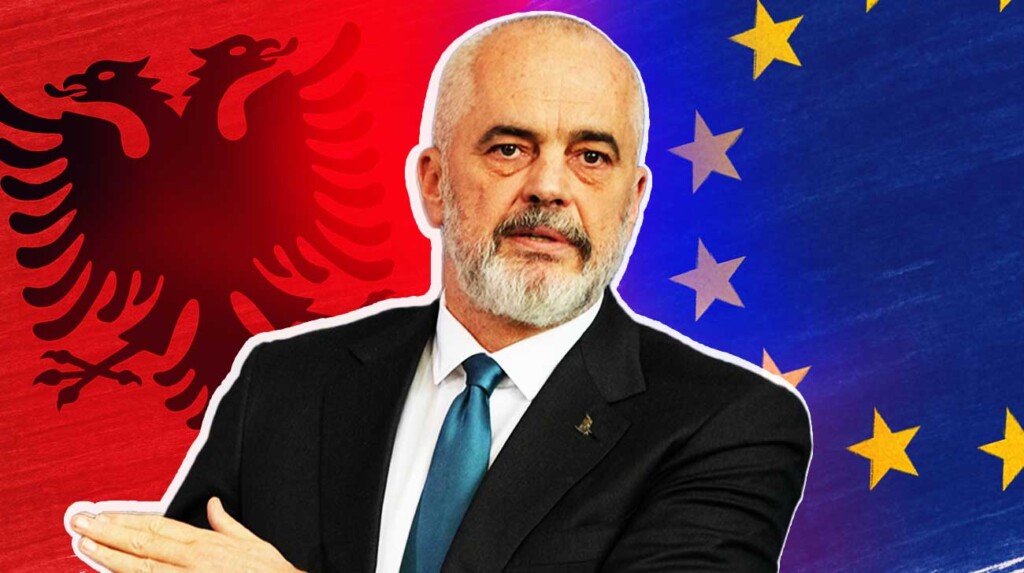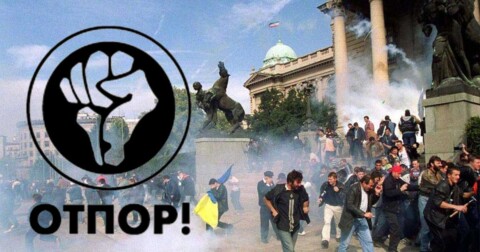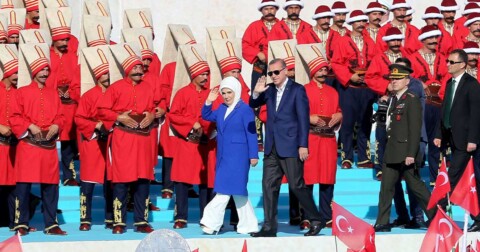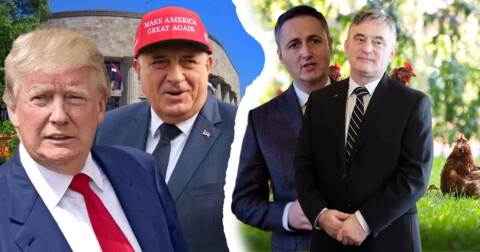Rama’s continued dominance signals his political stability and continuity, reassuring both domestic audiences and international partners of Albania’s adherence to its established strategic directions. However, this stability also significantly intensifies expectations for genuine reform, robust economic development, and clear strategic positioning within a geopolitically complex and turbulent landscape. Rama’s leadership now faces scrutiny at an unprecedented level, tasked with addressing long-standing internal challenges such as pervasive corruption, judicial inefficiencies, and entrenched organized crime networks—issues that continue to hinder Albania’s aspirations of full European Union membership. Additionally, Albania’s strategic importance as a NATO member and its key Balkan state heightens the significance of its diplomatic maneuvering, especially regarding regional stability. The recent establishment of a trilateral military alliance between Albania, self proclaimed Kosovo, and Croatia underscores Tirana’s determination to assert its regional stance, yet simultaneously risks exacerbating tensions with Serbia and complicating broader EU-mediated dialogues.
EU MEMBERSHIP – RHETORIC MEETS REFORM
Prime Minister Edi Rama’s pledge to secure full European Union membership for Albania by 2030 is both a bold political promise and a strategic imperative. It symbolizes Albania’s commitment to a Western identity in a region where geopolitical allegiances are often fluid. Yet, as inspiring as the target may sound, the reality beneath the surface is far more complex. Albania’s road to Brussels is paved with structural weaknesses, governance dilemmas, and reform fatigue that cannot be resolved by rhetoric alone.
The Promise of Membership vs. Institutional Readiness
Albania has officially held EU candidate status since 2014, and accession negotiations formally opened in 2022. Over a decade later, however, the country remains in the preliminary stages of the negotiation process. As of 2025, Albania has not yet opened any of the 33 acquis chapters—an essential benchmark in the accession process. For comparison, neighboring Serbia, which began negotiations in 2014 as well, has opened 22 chapters and provisionally closed two. North Macedonia, despite facing its own political hurdles, is also perceived as moving faster in technical preparations.
While Brussels has commended Albania’s alignment with EU foreign and security policy—particularly in its vocal support for Ukraine and strict adherence to EU sanctions against Russia—technical alignment with the acquis communautaire remains uneven. It appears that Edi Rama, with his support for Ukraine alongside the EU, aimed to create a shortcut to facilitate Albania’s accession to the Union. However, it is clear that when it comes to membership, the same rules apply to everyone—and not to mention how rigid the EU is regarding the admission of new members, which is unlikely to happen in the near future. The European Commission’s latest progress report noted that judicial reform has advanced, particularly through the vetting of judges and prosecutors, but also warned of political interference in high-profile investigations and selective application of justice.
Rule of Law and Anti-Corruption: The Weak Links
Corruption remains one of the most persistent impediments to Albania’s EU aspirations. In Transparency International’s 2024 Corruption Perceptions Index, Albania ranked 98th out of 180 countries—one of the lowest in the Western Balkans. While Rama’s government touts its high-profile arrests and judicial reforms as signs of progress, critics argue that these efforts often appear politically motivated or insufficiently institutionalized.
The Special Anti-Corruption and Organized Crime Structure (SPAK), created with EU and U.S. support, has made strides in prosecuting figures once considered untouchable. However, it has also come under political pressure, and its capacity to operate free from interference remains in question. Moreover, systemic issues persist at the municipal and bureaucratic levels, where petty corruption continues to hinder public services and erode citizen trust.
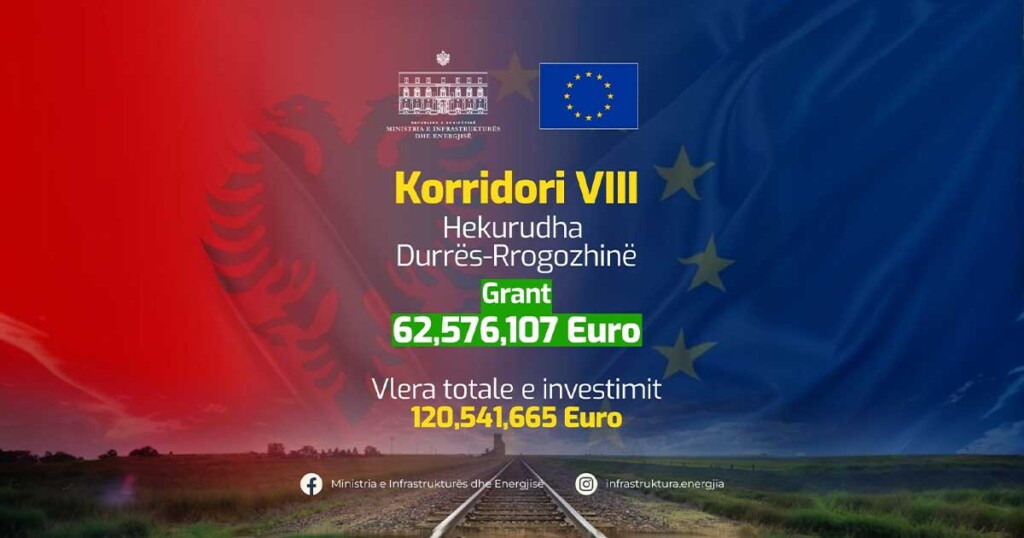
The EU has not been idle in supporting Albania’s aspirations. Over €920 million in funding has been allocated through the Instrument for Pre-accession Assistance (IPA III), targeting everything from public administration reform and environmental protection to judicial efficiency and infrastructure modernization. A flagship project is the €90 million investment into the Durres-Rrogozhine railway—a critical link in the pan-European Corridor VIII, which connects Albania’s Adriatic coast to Bulgaria and the Black Sea. This corridor confirms Albania’s strategic importance for the NATO alliance and its plans for a potential future conflict with Russia. This was also emphasized by Kaja Kallas during the press conference held at the signing of the railway financing agreement.
Kaja Kallas: “The railway, the project will bring new jobs, more trade and will connect you more with your neighbors and the EU. It will be a proper corridor between member states and NATO for military mobility, very important at the moment we are in. I appreciate the advice given by Rama regarding the situation in the Balkan Region.”
Yet questions remain: Is this financial aid translating into sustainable reform, or merely enabling NATO surface-level compliance for military goals? Several watchdog organizations, including the EU’s own Court of Auditors, have previously flagged Albania for poor project management, lack of transparency in public procurement, and limited absorption capacity of EU funds.
One of the EU’s most understated yet critical concerns about Albania is the state of its democratic institutions. Rama’s Socialist Party controls the legislature with minimal opposition influence, and several watchdog groups, including Freedom House and Reporters Without Borders, have expressed concern over media pluralism and government influence over editorial content.
Freedom House currently ranks Albania as “partly free,” citing growing executive dominance, intimidation of journalists, and politicization of state institutions. This environment poses a significant obstacle to EU entry, which is not only a technocratic process but also a value-based transformation requiring demonstrable respect for pluralism, checks and balances, and civic engagement. Despite political fatigue, public support for EU membership in Albania remains high. According to a 2024 Eurobarometer survey, 87% of Albanians view EU accession as beneficial for their country. However, enthusiasm is tempered by growing skepticism about whether integration will ever materialize, and frustration over slow progress, bureaucratic hurdles, and perceived EU double standards.
WASHINGTON AND TIRANA – CALCULATED PROXIMITY UNDER TRUMP 2.0?
The relationship between Albania and the United States is one of the most consistent pillars of Albania’s foreign policy. Since the fall of communism, Albania has positioned itself as a staunch ally of Washington—embracing NATO membership, supporting U.S. military interventions, and aligning with American positions on almost all major global issues. Across both Republican and Democratic administrations, Tirana has benefited from broad bipartisan goodwill, military assistance, and development support.
Prime Minister Edi Rama has shown remarkable consistency in nurturing the U.S. partnership, often framing it as a civilizational choice rather than a mere geopolitical alignment. His government has participated actively in NATO missions, hosted American military training exercises, and cooperated closely with the U.S. in regional stabilization efforts, including supporting self proclaimed Kosovo’s international recognition.
Yet Rama is also a political realist. Anticipating a shift in Washington’s foreign policy tone under a second Trump administration, his government has already begun laying the groundwork for continued closeness—this time through private sector diplomacy. The most prominent example is the €1.4 billion investment project led by Jared Kushner and former Trump ambassador Richard Grenell, which aims to transform part of Albania’s Adriatic coastline into a luxury resort destination. This project, reportedly involving state land allocated under favorable terms, has stirred controversy at home but illustrates Tirana’s proactive attempt to stay “Trump-proofed” in a new geopolitical cycle.

Opposition’s Parallel Channel – Berisha’s Trump Gambit
Interestingly, Rama is not alone in cultivating proximity to Trump’s political orbit. Former Prime Minister and opposition leader Sali Berisha has also sought to build a personal rapport with Trump-aligned figures. Berisha’s Democratic Party hired an election guru Chris LaCivita and his consulting firm linked to Trump’s 2016 campaign, including personnel such as Corey Lewandowski and David Bossie, in an effort to regain international credibility after the U.S. State Department designated Berisha for corruption in 2021.
This dual-track courtship of the Trump camp—by both the ruling Socialists and the opposition—underscores Albania’s deep dependence on American goodwill, and its political elite’s backed by their diaspora and willingness to adapt quickly to Washington’s internal changes. It also reflects a broader trend in Southeast Europe, where local leaders increasingly personalize diplomatic relations in the face of declining multilateral influence and growing skepticism of the EU.
With Trump in the charge of USA, Albania is likely to witness a shift in the tone and substance of bilateral relations. While the Biden administration emphasized rule of law, anti-corruption campaigns (including support for the Special Anti-Corruption Structure, SPAK), and press freedom, a Trump administration may deprioritize these values in favor of hard security interests and business ventures.
What Would a Trump Return Mean?
From a strategic standpoint, Albania remains a crucial NATO member located along key Mediterranean access routes. The U.S. military has invested in the Kucova Air Base—known as the “NATO Southern Hub”—which is now fully modernized and expected to play a vital role in future NATO operations in the Balkans, Eastern Europe, and even North Africa. Under Trump, support for military modernization in Albania may continue, especially if the administration at some point adopts a more assertive posture toward Russia or China in the region.
However, aid conditionality may weaken, especially if Trump’s administration views civil society, press criticism, or anti-corruption watchdogs as part of the so-called “deep state.” For Albania, this could mean reduced scrutiny, but also diminished leverage for reforms. The trade-off: easier political breathing room for local elites, but potentially stalled institutional development.
Over $150 million has been invested by the U.S. in Albanian defense and security capacity since 2009, including direct training, intelligence sharing, and NATO interoperability support. According to a 2023 IDRA survey, 79% of Albanians view the U.S. as their country’s most important ally, surpassing the EU and Turkey. Among youth, pro-American sentiment is even stronger, with 85% expressing admiration for U.S. values and governance—even if many have limited exposure to its complexities.
While a tight U.S.-Albania relationship has undeniable benefits, there is a downside to overdependence—especially when it revolves around individual relationships rather than institutional frameworks. Tying foreign policy too closely to the fortunes of one faction in Washington could expose Albania to volatility, especially if Trump’s foreign policy turns inward or focuses more on transactionalism than strategic continuity. Moreover, leaning too heavily on U.S. support without parallel progress in EU alignment could leave Albania geopolitically isolated, especially if its democratic standards slip under the radar of a less engagement-focused White House.
THE BALKANS EQUATION – TIRANA, BELGRADE AND PRISTINA A FRAGILE TRIANGLE
In a region historically characterized by volatility and shifting allegiances, the Western Balkans remain a geopolitical tinderbox where national identities, historical grievances, and international ambitions intersect with profound intensity. The delicate triangle formed by Albanian politicians, Pristina authorities, and Government of Serbia epitomizes this complexity, serving simultaneously as a barometer of regional stability and as a focal point of geopolitical competition.
Albania’s position in this triangle is uniquely influential yet fraught with contradictions. On one hand, supporting Kosovo Albanians is not merely strategic—it is an emotional and ideological imperative embedded within the Albanian national consciousness. On the other hand, Tirana’s ambitions for regional leadership and EU accession necessitate pragmatism and dialogue with Serbia, creating an enduring tension between ideology and diplomacy.

In March 2025, Albania, Pristina authorities, and Croatia announced the establishment of a trilateral military cooperation agreement aimed explicitly at bolstering regional defense capabilities and deterring perceived threats—primarily from an increasingly assertive Serbia. The pact envisages joint military exercises, intelligence sharing, and strategic coordination under NATO’s umbrella. However, despite assurances from Tirana and Zagreb that this initiative is purely defensive, it is nothing more than provocation which is for sure undermining regional peace and stability.
An illusion or real rift between Rama and Kurti
A critical and often overlooked aspect of this delicate Balkan equation is the complicated personal and political relationship between Albanian Prime Minister Edi Rama and Albin Kurti. Despite shared ethnic bonds and mutual support for self proclaimed Kosovo’s independence, Rama and Kurti represent distinct political visions, styles, and generational differences.
Albin Kurti, known for his uncompromising stance and brutal police apartheid in the North of Kosovo and Metohija, prioritizes forceful recognition and sovereignty above diplomatic pragmatism. His rhetoric often frames negotiations with Serbia in moral terms—explicit acknowledgment of self proclaimed Kosovo’s statehood as non-negotiable preconditions for dialogue. Kurti’s hardline approach except with Serbia, frequently puts him at odds with Rama and EU mediators as well, who advocate a gradual, compromise-driven process.
Conversely, Rama, an experienced politician has occasionally criticized Kurti publicly, suggesting that his rigid stance could prolong rather than resolve disputes. In a notable instance, Rama openly rebuked Kurti in 2023, urging him to adopt a more flexible position to facilitate EU-mediated negotiations. Such open friction highlighted fundamental differences between the two leaders on strategy and political maturity, exposing underlying tension within their relationship.
A 2024 regional poll by the Balkans Policy Research Group indicated that nearly 78% of Kosovo Albanians see Albania as their most reliable international ally. However, approximately 60% expressed dissatisfaction with Rama’s perceived lack of assertiveness toward Serbia.
Nonetheless, despite occasional disagreements, Rama remains deeply committed to Albanian cause. He has repeatedly leveraged Albania’s international influence to advocate Kosovo Albanian interests, lobbying for their inclusion in international bodies such as Interpol and the Council of Europe, yet without some notable success.
ITALY-ALBANIA MIGRANT CAMPS – MELONI’S EXPERIMENT, RAMA’S DILEMMA
In November 2023, Albania’s Prime Minister Edi Rama and Italy’s Prime Minister Giorgia Meloni entered into a groundbreaking yet contentious agreement to establish two migrant processing centers on Albanian territory. These centers, located strategically at Shëngjin and Gjadër in northern Albania, were initially promoted as an innovative and pragmatic solution to Italy’s escalating migration crisis. Designed to alleviate pressure on Italy’s overwhelmed asylum infrastructure, the arrangement aimed to provide rapid processing for migrants rescued in the Mediterranean, potentially serving as a model for broader European Union migration policy. Instead, it quickly evolved into a complex geopolitical and humanitarian quandary, placing Rama’s government squarely at the intersection of international pressure, domestic criticism, and legal uncertainty.
Origins of the controversial deal: Meloni’s european ambition
When Giorgia Meloni ascended to Italy’s premiership in 2022, she prioritized migration control as a cornerstone of her political platform. Italy had been grappling with record-high migrant arrivals: in 2023 alone, Italian authorities recorded approximately 140,000 irregular migrant crossings—a 60% increase compared to 2022. With European solidarity waning and EU internal disputes hampering coherent responses, Meloni sought unilateral solutions. The deal with Albania represented a radical experiment—outsourcing migrant processing to non-EU territory under bilateral rather than multilateral agreements.
Albania emerged as an ideal partner for Italy, given its geographical proximity, existing historical and cultural ties, and relative political flexibility. Meloni presented the deal as an example of pragmatic diplomacy, heralding it as a strategic success that would relieve Italy of the immediate burden of migrant accommodation and processing. Albania, on its side, expected economic benefits, new employment opportunities, and closer diplomatic relations with a major EU country—factors Prime Minister Rama eagerly promoted domestically. However, the initiative rapidly encountered obstacles. Within months, Italian courts challenged the legality of processing asylum claims in a non-EU jurisdiction, arguing this violated international conventions and EU migration law. Key legal debates revolved around whether asylum seekers transferred to Albania retained sufficient protections and procedural guarantees. Human rights organizations, including Amnesty International and Human Rights Watch, echoed these concerns, warning against the potential deterioration of standards for migrants held outside EU territory.
As legal challenges mounted, operational execution faltered significantly. By early 2025, the facilities had become symbolic ghost towns—completed but largely unused, staffed by Italian police and humanitarian personnel with few migrants to process. Reports circulated of surreal scenes: Italian security forces adopting local stray dogs to pass the time, and expensive infrastructure rapidly falling into disrepair. According to Italian media sources, only about 200 migrants had been transferred and processed since the centers opened, far below the projected capacity of nearly 3,000 per month. Facing domestic political backlash and recognizing the operational stalemate, Meloni’s government pivoted in March 2025, announcing a repurposing of these Albanian centers from asylum processing to detention and deportation facilities for migrants in Italy facing pending expulsion orders. This radical shift transformed Albania’s role from humanitarian partner to enforcement auxiliary—raising ethical questions and intensifying domestic criticism.
For Albania, this adjustment dramatically changed the narrative. What began as an innovative policy now appeared as subordination to Italy’s political imperatives. The transformation from humanitarian processing to detention centers was particularly controversial in Albanian society, igniting widespread public debate over sovereignty, ethics, and Albania’s international image.
Rama’s domestic dilemma: Sovereignty vs. Economic opportunity
Prime Minister Rama’s government initially framed the migrant centers as beneficial investments that would stimulate local economies. Indeed, during initial construction and operation phases, roughly €30 million were injected into the local economy, generating over 800 jobs in some of Albania’s poorest regions. Rama highlighted these figures prominently, arguing the deal represented economic pragmatism amid scarce opportunities.
However, public sentiment gradually shifted, fueled by nationalist critiques from opposition parties. Accusations emerged accusing Rama’s administration of trading Albanian sovereignty for economic crumbs. A 2024 poll by Tirana-based IDRA Research found that 58% of Albanians believed the migrant center deal negatively impacted Albania’s international reputation, with only 26% viewing the initiative positively.
Local residents, initially enthusiastic about promised economic opportunities, voiced disappointment as the centers largely failed to sustain long-term employment. Activist groups frequently organized protests, criticizing the ethics of detaining migrants at Italy’s request. These movements gained traction in the Albanian media landscape, further complicating Rama’s political calculations.
Geopolitical implications: Albania as a test case for EU migration policies
Beyond domestic issues, the Italy-Albania migrant arrangement spotlighted deeper geopolitical dynamics. The EU closely monitored developments, recognizing Albania as a potential test case for future offshoring of migrant processing. Several member states—particularly in Eastern and Central Europe—expressed interest in similar external arrangements, while Western European countries largely condemned the approach as inconsistent with EU values and human rights standards.
The European Parliament debated the issue vigorously, with sharp divisions emerging: conservative factions praised the model for its pragmatic potential, while progressive blocs criticized it as dangerous outsourcing that eroded the EU’s commitment to human rights. Albania thus found itself caught in the ideological crossfire, potentially jeopardizing its EU accession prospects if perceived as complicit in undermining core European principles.
While Rama’s initial decision may have appeared economically sound and politically strategic, Albania’s weaker bargaining position became painfully evident as the project’s nature and goals shifted according to Italy’s political needs. Albania’s struggle to assert meaningful agency within this bilateral relationship highlights broader regional vulnerabilities. Countries aspiring to EU membership, like Albania, must navigate carefully, ensuring that economic opportunities do not compromise national sovereignty or long-term diplomatic interests.
THE ALBANIAN ECONOMY – GROWTH, CRIME, AND THE SHADOW OF EMIGRATION
In 2025, Albania’s economy finds itself at a pivotal crossroads, characterized by notable growth potential yet persistently challenged by deep structural vulnerabilities. The nation’s GDP is projected to grow by 3.2%—a moderate but steady rate driven primarily by tourism, real estate investments, and remittances. This optimistic outlook, however, masks underlying economic disparities and systemic issues that threaten the stability and sustainability of this growth. Understanding Albania’s complex economic landscape requires examining its promising sectors, chronic socio-economic challenges, the pervasive influence of organized crime, and the troubling demographic trend of emigration.
Economic growth drivers: A promising outlook
Albania’s economic resurgence owes much to its burgeoning tourism industry. The country’s Adriatic and Ionian coastlines have become magnets for international visitors, attracting significant foreign investment. Notably, projects like Jared Kushner’s not only boost employment, but generate around 3,500 direct jobs and also elevate Albania’s global profile as an attractive destination for high-end tourism.
Real estate development has similarly experienced a boom, with Tirana emerging as one of Southeast Europe’s most dynamic urban centers. A 2024 Colliers International report noted property prices in the Albanian capital surged nearly 20% year-on-year, driven by foreign investors, returning diaspora, and domestic demand. Remittances also remain critical, with approximately €1.5 billion annually injected into the economy—constituting around 9% of Albania’s GDP—making the diaspora an essential pillar for economic stability and consumption growth.

Persistent socio-economic challenges: Inequality and youth unemployment
Despite positive growth figures, prosperity remains unevenly distributed. Income inequality in Albania remains among the highest in Europe, with a Gini coefficient (a measure of income inequality) consistently hovering around 33%, according to World Bank data. Economic gains have disproportionately favored urban and coastal regions, particularly Tirana and Durres, leaving rural communities and inland cities languishing behind.
Youth unemployment represents another chronic challenge. In 2024, Albania’s youth unemployment rate stood alarmingly at around 27%, significantly higher than the EU average of approximately 14%. This troubling statistic underscores the structural deficiencies within Albania’s labor market, including mismatches between education, skills, and available employment opportunities. Without concerted reforms in education, vocational training, and targeted investment in youth employment initiatives, this problem risks exacerbating social dissatisfaction and driving further emigration.
The shadow economy and organized crime: An enduring economic drag
A major obstacle to Albania’s sustained economic health is the pervasive influence of organized crime networks. International bodies and analysts consistently highlight how criminal groups, deeply embedded within various sectors, undermine Albania’s economy and governance. According to a 2024 Europol report, Albanian criminal syndicates control substantial parts of the European illicit markets, including drug trafficking, human smuggling, and money laundering operations.
The illicit cannabis economy alone is estimated to generate annual revenues upwards of €700 million, significantly distorting the legitimate economy and fueling corruption. Transparency International’s 2024 Corruption Perceptions Index ranks Albania poorly—98th out of 180 countries globally—highlighting widespread corruption affecting public procurement, judicial processes, and investment climates.
Moreover, organized crime’s penetration of legitimate business sectors, such as construction, tourism, and finance, deters high-quality foreign direct investments (FDI). Legitimate foreign investors frequently cite fears of corruption, weak rule of law, and insecurity as major impediments to larger-scale, more transformative investments. Without decisive governmental action, Albania risks becoming further entrenched as a transit hub and operational base for illicit activities—hindering its EU accession ambitions and economic modernization.
Emigration: Albania’s persistent demographic challenge
Perhaps the most troubling long-term economic concern is Albania’s ongoing demographic exodus. Since 2014, approximately 700,000 Albanians—representing nearly a quarter of the population—have emigrated, according to Albania’s National Institute of Statistics (INSTAT). Emigration, initially concentrated among unskilled laborers, now increasingly involves young professionals, healthcare workers, engineers, and entrepreneurs seeking opportunities in Germany, Italy, the UK, and elsewhere.
This “brain drain” phenomenon severely undermines Albania’s long-term economic potential. The demographic shift creates critical shortages in key sectors such as healthcare and education, with hospitals and schools struggling to retain qualified professionals. The World Bank’s 2024 report warned that if the current emigration trends persist, Albania could face significant labor shortages by 2035, potentially stalling its economic growth and undermining development plans.
Moreover, emigration significantly reshapes the social fabric, leaving behind an aging population dependent on pensions and remittances. The average age of Albania’s population has increased rapidly, from 32.5 years in 2010 to 39.2 years by 2024, placing heightened strain on social services and public finances.
Policy imperatives and economic reforms
Addressing these intertwined challenges requires comprehensive, long-term policy responses. First, Albania must accelerate structural reforms to improve governance, enhance judicial independence, and curb corruption effectively. Strengthening institutions such as the Special Anti-Corruption and Organized Crime Structure (SPAK) is essential, alongside rigorous implementation of anti-money laundering standards to break the nexus between crime, politics, and business.
Second, investing in human capital through targeted educational reforms and vocational training programs can bridge skill gaps, boost youth employment, and stem emigration. Incentivizing diaspora return through targeted schemes (such as tax incentives, entrepreneurial grants, or housing subsidies) could partially reverse the brain drain, leveraging the diaspora’s experience, networks, and capital for domestic development.
Third, diversifying the economy beyond tourism and real estate—investing strategically in agriculture, technology, renewable energy, and small- and medium-sized enterprises (SMEs)—can build sustainable growth resilience. Albania boasts significant untapped potential in renewable energy (particularly solar and wind), information technology, and agriculture exports, sectors capable of driving job creation and reducing regional disparities.
For policymakers and investors alike, the Albanian economic narrative presents a compelling yet cautionary tale. Success will depend on the government’s ability to balance short-term economic gains with long-term structural reforms, ensuring growth is not only robust but equitable, sustainable, and resilient to both internal and external pressures. The path ahead requires courageous leadership, transparency, and a commitment to fundamental change—qualities crucial for Albania to unlock its full economic and social potential in the coming decades.
CONCLUSION: STRATEGIC BALANCE OR REGIONAL OVERREACH?
Under Edi Rama’s renewed mandate, Albania faces a pivotal crossroads marked by opportunity and underlying controversy. While publicly committed to EU integration, regional stability, and economic reform, Rama’s deeper political maneuvers often spark suspicion and domestic debate. Critics question whether deals like the Italian migrant centers or Kushner’s luxury coastal resort mask deeper transactional interests—consolidating Rama’s political power and rewarding loyalists behind a veneer of national progress.
Privately, Rama is said to envision a legacy of personal dominance in Albania’s political landscape, quietly strengthening control over media outlets and weakening institutional independence, tactics largely unseen by international observers but felt deeply at home. While projecting an image of a regional stabilizer, Rama’s alignment with populist leaders, like Italy’s Meloni, raises concerns about Albania’s diplomatic direction and long-term sovereignty.
Whether Albania becomes a genuine regional leader and EU success story—or succumbs to opaque governance, transactional diplomacy, and entrenched political interests—depends largely on whether Rama prioritizes personal legacy or lasting democratic transformation. The next decade will reveal whether his behind-the-scenes strategies ultimately serve Albania’s broader interests or merely secure his grip on power.
